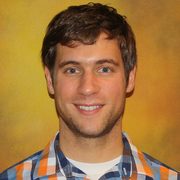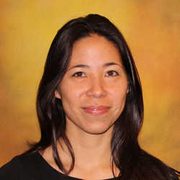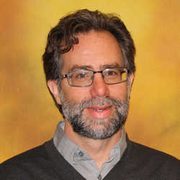-
The Andrew W. Mellon Foundation and the American Council of Learned Societies (ACLS) has awarded a new grant to Carleton’s Mellon Mays Undergraduate Fellowship program for the 2021-2022 academic year. Carleton’s MMUF program has been continuously funded since it was established as one of the eight founding programs in 1988. Described as “the centerpiece of The Andrew W. Mellon Foundation’s initiatives to increase diversity in the faculty ranks of institutions of higher education,” MMUF supports students from underrepresented backgrounds and others committed to diversification of the academy who plan to pursue a PhD in humanistic fields. At Carleton, MMUF participants are selected at the end of their sophomore year or during their junior year through a competitive application process. Directed by Associate Professor and Chair of Linguistics, Cherlon Ussery, PhD, and Associate Dean of Students, Sindy Fleming, EdD, Carleton’s program supports up to 10 fellows through two years of independent research, participation in regional and national activities with other Mellon Mays fellows, and preparation for graduate school.
-
NASA grant to Terrien for exoplanet detection
30 September 2021Ryan Terrien, Assistant Professor of Physics and Astronomy, is the recipient of a NASA Extreme Precision Radial Velocity (EPRV) grant for “Linking solar magnetic activity and radial velocity variability with ultra-high resolution laser heterodyne spectroscopy.” In collaboration with Penn State U and the National Institute of Standards and Technology (NIST), this project aims to, through the use of a specialized spectroscopic tool, improve the understanding of magnetic activity-induced radial velocity variations and inform techniques for the mitigation of stellar activity for exoplanet detection.
-
Sarah Meerts receives National Institutes of Health award
17 September 2021Sarah Meerts, Associate Professor of Neuroscience and Psychology, has been awarded a National Institute of Health (NIH) Academic Research Enhancement Award (AREA) grant for her project “Neurobiology of female sexual health.” Prof. Meerts’ research employs a novel model of experience-enhanced sexual behavior in female rats to better understand neural and peripheral factors underlying sexual health. Outcomes of the research will inform treatments for female sexual dysfunction. The grant enhances research opportunities for undergraduate researchers, including those from underrepresented populations, and supports an educational associate in each year of the project.
-
Rika Anderson, Assistant Professor of Biology, is a recipient of a Research Corporation for Science Advancement (RCSA) Scialog Signatures of Life in the Universe (SLU) collaborative award for “Long term controls on the scope of Earth’s biosphere.” With Noah Planavsky and graduate students at Yale University, Prof. Anderson and an educational associate hope to enhance understanding of the scope of earth’s biosphere and evolution of biosignatures on early Earth-like exoplanets. Research Corporation’s SLU program considers this project as highly innovative with potential to transform its field of research and address critical global issues.
-
Ryan Terrien, Assistant Professor of Physics and Astronomy, has been awarded a National Science Foundation (NSF) Astronomy and Astrophysics Research Grant (AAG) (#2108569) for the project “Collaborative Research: Understanding exoplanets orbiting fully convective stars with the Habitable-zone Planet Finder.” This research, in collaboration with U California-Irvine, Pennsylvania State U, and U Texas at Austin, contributes to the search for planets around nearby low-mass stars, supports outreach and educational activities that engage with the public’s interest in exoplanet discovery, and funds undergraduate and graduate research from underrepresented minority populations.
-
Rika Anderson wins prestigious NSF CAREER award
16 August 2021Rika Anderson, Assistant Professor of Biology, is the recipient of a National Science Foundation (NSF) award for her project “CAREER: Temporal dynamics of microbial and viral function and adaptation in hydrothermal vents.” Her work will expand knowledge of how microbes and viruses from hydrothermal vents adapt and evolve over time, in hopes of providing insights into the early evolution of life on Earth and into the ways microorganisms respond to anthropogenic disturbances like deep-sea mining and climate change over time. Additionally, Prof. Anderson’s research engages undergraduate partners at all stages of the research process. CAREER grants are NSF’s most prestigious award to early-career faculty.
-
Terrien contributes to NEID spectrometer
1 July 2021Ryan Terrien, Assistant Professor of Physics and Astronomy, will support the NASA-funded NEID spectrometer Data Reduction Pipeline (DRP). With a contract from the University of Arizona, over the summers of 2021 and 2022, Prof. Terrien will develop and implement software, and conduct tests for the NEID wavelength calibration subsystem and supporting modules.
-
Joe Chihade, Professor of Chemistry, received an American Society for Biochemistry and Molecular Biology (ASBMB) Undergraduate Research Award to purchase reagents and supplies used by David Wilson, one of his student researchers, during summer 2021.
-
Ryan Terrien, Assistant Professor of Physics and Astronomy, has been granted support from NASA to work with Eric Ford at Penn State on research that advances knowledge of the effectiveness of multiple strategies for mitigating the effects of stellar variability and instrumental effects on the measurement of extremely precise radial velocities (EPRVs) in the search for extrasolar planets. Prof. Terrien’s contribution involves diagnosing instrumental effects, and analyzing the effects of magnetic fields on Solar spectra obtained with the NEID spectrograph.
-
SPIE Education Outreach Grant to Marty Baylor
20 April 2021Marty Baylor, Associate Professor of Physics, has been awarded an SPIE (The international society for optics and photonics) Education Outreach Grant for her project, “Understanding Interferometry with LEGO.” The funds, enabling purchase of a travel-ready interferometer, support outreach to middle and high school students underrepresented in STEM. The new interferometer along with simple landscapes made from LEGO will be used to teach about how light can be used to make precision measurements at BLAST (Northfield), STEAM (Faribault), and TORCH (Northfield).




